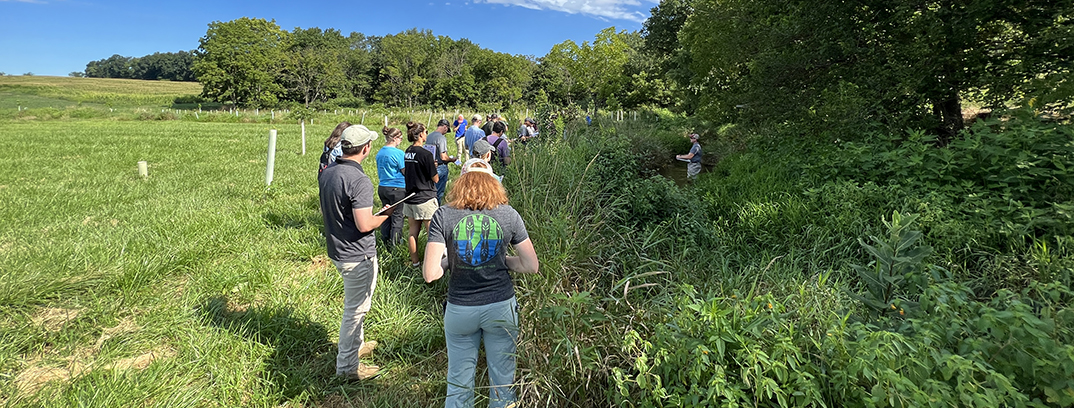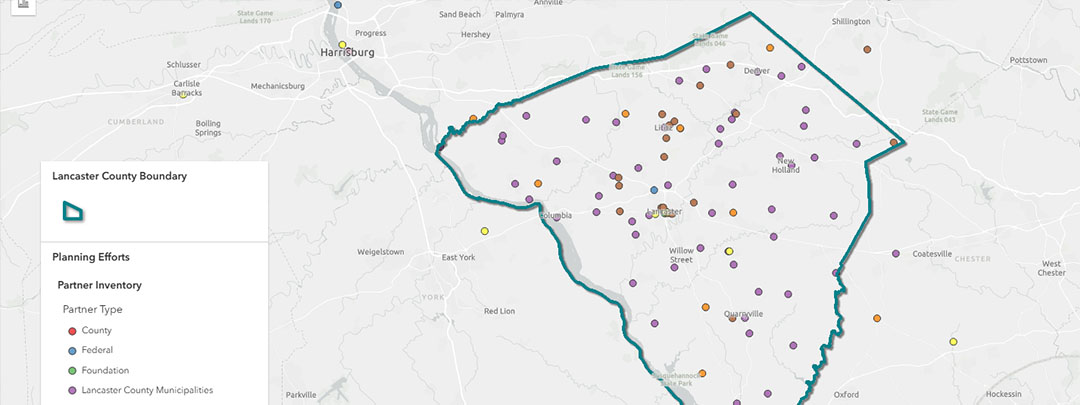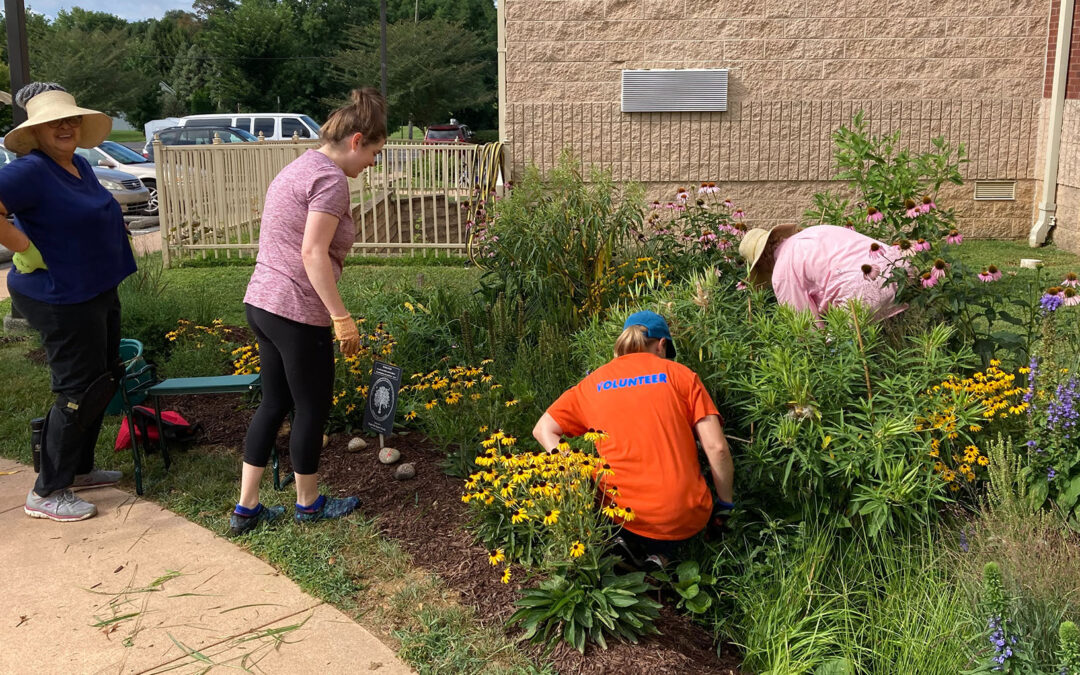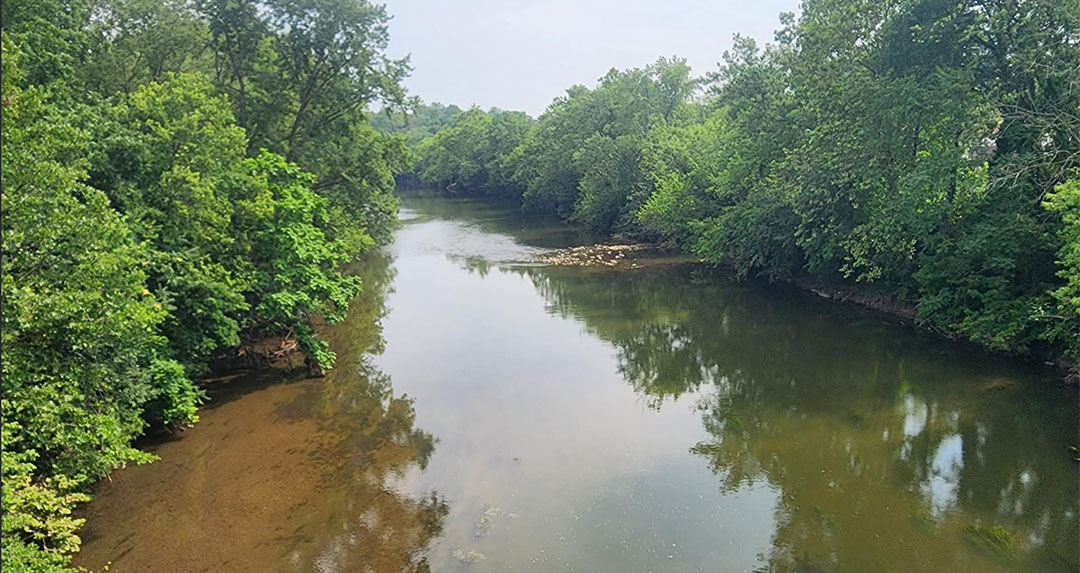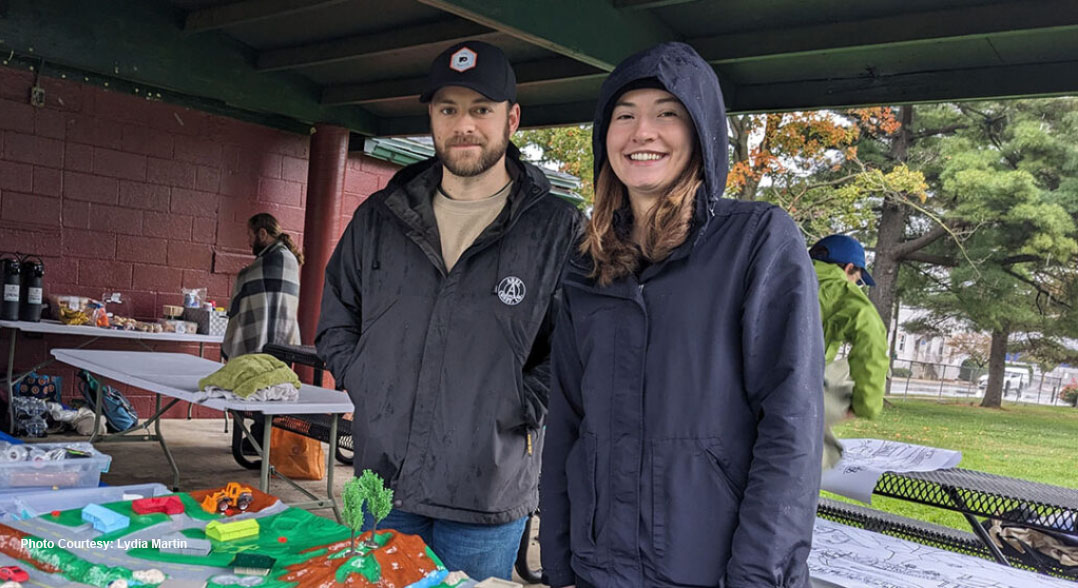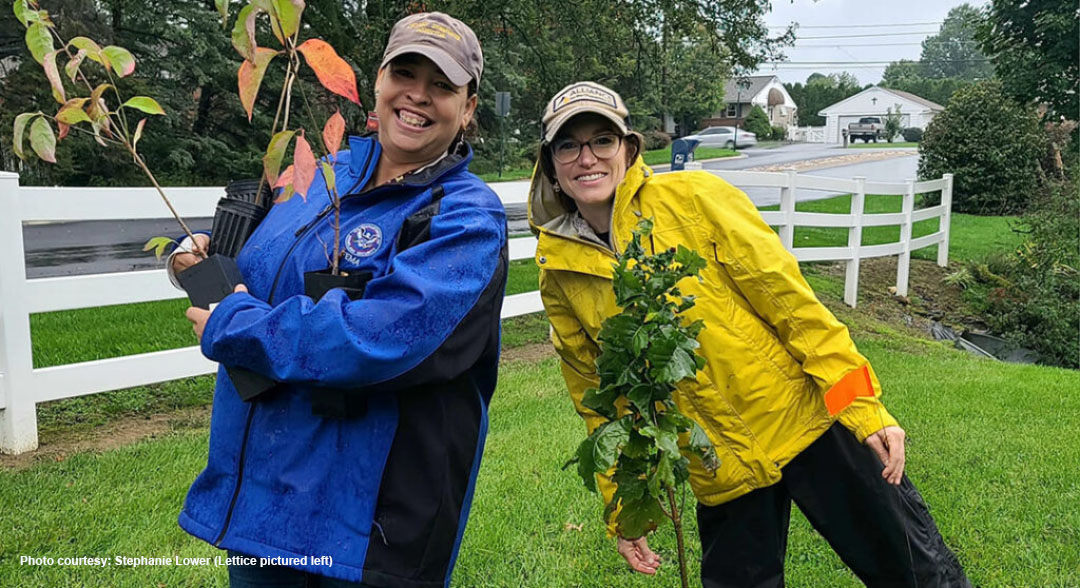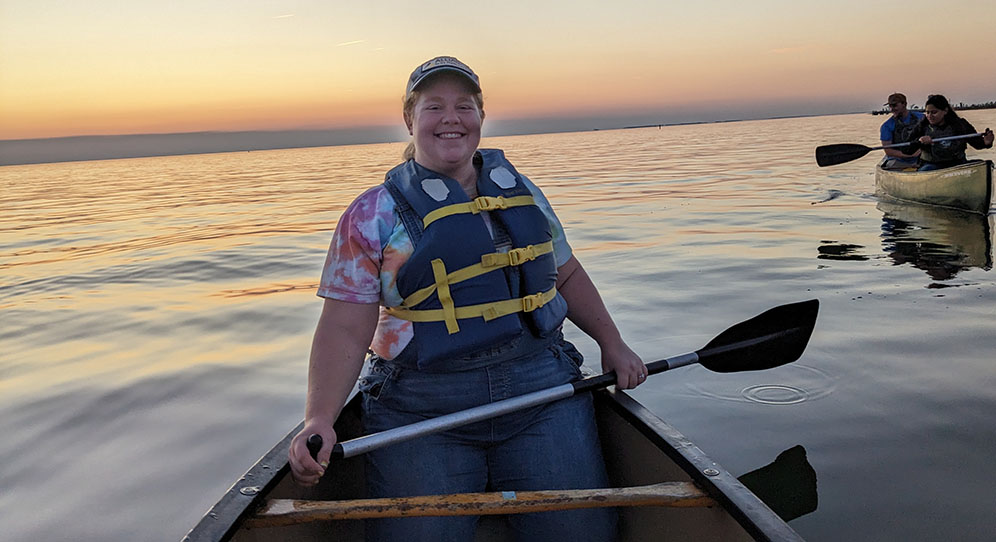Local Congregations Are Stewarding Clean Water

Think about a water conservation project. Are you thinking about stream restoration at a farm with shovels and earth-moving equipment? Are you thinking of volunteers planting trees? Are you thinking of a congregation working together to diligently steward our natural resources? The latter may not have come to mind but many communities of faith are stepping up and making a difference. One example is Lutheran Church of the Good Shepherd in Lancaster, who with leadership from the Interfaith Partners for the Chesapeake, partnered to use funds from a National Fish and Wildlife Foundation grant to fund the design and construction of a rain garden on their church property.
When asked about the inspiration behind the project, Helen Book, the Landscape Director at Lutheran Church of the Good Shepherd, said, “We had a consultation with the Interfaith Partners for the Chesapeake when we did a tree planting. At the time we talked about the downspouts being tied into the sewer system, and how not clean water friendly that was. A rain garden was suggested in an area that had not been considered in the past.”
Was there any concern from the congregation? “There was no push-back on this project, which is unusual! We have had a few rainy days since installation and all is working fine. Folks actually drive by it to take a look!”
In its most simple design, a rain garden is a type of garden strategically located so that it can intercept stormwater and allow it to soak into the soil. In addition to the benefit of flood risk reduction and water filtration, it also can support biodiversity and wildlife and is pollinator-friendly. Mayapple Native Landscaping LLC constructed the rain garden which helps the municipality go above and beyond its stormwater permit requirements.
Why are church congregations becoming so involved in the clean water initiative? Mike Hudson, Outreach Coordinator of Interfaith Partners for the Chesapeake (IPC) explains:
“Communities of faith are committed to clean water solutions because they believe that we have a sacred duty to care, not just for one another, but for all of Creation. Water is a life-giving force that connects us to nature and to one another. People of faith are putting their spiritual values into action by caring for their local waterways, demonstrating passionate stewardship of the natural world!”
Other examples of congregations in Lancaster striving for a greener impact include Bright Side Baptist Church, whose rain garden was a highlight of the Lancaster Water Week Tour earlier this year. Their project captures rainwater from 217 square feet of their roof, storing over 320 gallons of water, reducing stormwater and setting an example for other congregations.
Akron Mennonite Church transformed four acres of their church’s property into a breathtaking nature preserve and memory garden. AMC congregants, the community, and representatives from five sister congregations all came together to plant 450 trees and meadows of native grasses and flowers. The latter two churches worked directly with Interfaith Partners for the Chesapeake and are a small handful of the many congregations that are part of the
Hope Episcopal Church is taking flight with a bird-friendly habitat design! Since December, members have designed and built a dozen birdhouses and two winter roosting boxes, which they will begin to set up around the property within the next month. They are now designing a small bird-feeding station and a native plant garden dedicated to plants that songbirds and hummingbirds will love to visit! This initiative will complement their ongoing greening projects, which also include a retention basin, rain garden, tree plantings, and additional conservation landscaping practices; all of this also serves to foster a sense of community and a deeper appreciation for our watershed! IPC is proud to support Hope Episcopal Church with $500 funding to kickstart these projects.
These congregations participate in IPC’s One Water Partnership, working to improve local water quality and engage members of their faith communities. All of these kinds of green infrastructure projects are also contributing towards achieving Lancaster’s Countywide Action Plan (CAP) and these congregations.
Read about more examples of congregations engaging in clean water projects on IPC’s article “Lancaster Congregations for Clean Water” here.
*The views and conclusions contained in this document are those of the authors and should not be interpreted as representing the opinions or policies of the U.S. Government or the National Fish and Wildlife Foundation and its funding sources. Mention of trade names or commercial products does not constitute their endorsement by the U.S. Government, or the National Fish and Wildlife Foundation or its funding sources.






